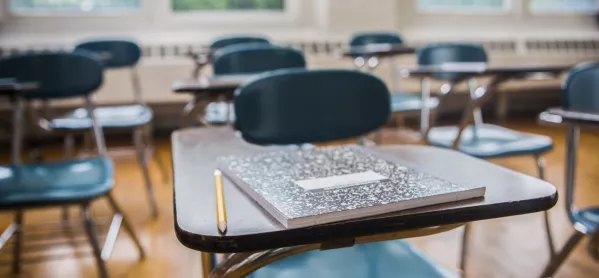Nobody disputes that the transition between primary and secondary can be a difficult time for children. A wealth of research shows that academic performance often declines, sometimes markedly in the case of disadvantaged pupils, when they change schools.
Children arrive in Year 7 with reported scores that bear no relation to their abilities. It could be that they were over-coached in Year 6, or that the long summer holiday has dulled learning, or that the shock of a different curriculum has impeded progress.
Whatever the cause, most schools rightly conclude that the easiest way to determine how significant that gap may be is to assess student attainment and ability in Year 7. A school cannot grasp how far a child has to go unless it knows where they start and what they are capable of. Once teachers have that baseline, they can determine what needs to be done to close any performance gap and maximise pupil potential.
Factors that limit potential
But what happens, a few months in, when teachers think they have determined a child’s correct level and they still aren’t making progress? Could other factors be limiting potential? Could it be a question of confidence and attitudes to teaching and learning? According to researchers, up to 30 per cent of attainment is influenced by attitude, which of course also has significant implications for student wellbeing, behaviour and later career success.
Pupil attitudes are crucial and we simply haven’t been paying them enough attention. Performance indicators can tell us a lot. But schools need to dig deeper. We need to understand what happens to a child’s self-esteem, confidence and work ethic when they change schools. We need to know how they view their own learning skills and how they view their teachers. And schools need to know what can be done to address problems in these areas when they are identified.
In September, GL Assessment will be publishing its findings into student attitudes. The report will be based on data from more than 30,000 students, making it one of the largest surveys on the subject ever published. The detailed findings will have to wait until then. But what is already abundantly clear is that a significant deterioration in positive attitudes to school has implications well beyond Year 7.
Deteriorating attitudes to learning
Transition isn’t just a matter of the first term, or even the second or third. Transition issues, according to our data, last well into Year 8 and beyond. Reports from Ofsted and others have repeatedly warned that pupil performance can deteriorate significantly at key stage 3. Suggested remedies have tended to focus on summative testing to arrest that decline.
Yet deteriorating attitudes to learning could be responsible for a significant proportion of pupil underperformance. Unless they are addressed, teachers will be tackling the problem with one hand tied behind their backs.
The good news is that schools and teachers can influence student attitudes if salient issues are identified and appropriate interventions are put in place. Bright children whose low self-esteem is undermining achievement can be helped to become more confident, for instance. Pupils who think they aren’t prepared for learning can be equipped with skills to allow them to study more effectively.
Pupils can be helped to have a more positive attitude to learning. But this will only happen when we recognise what a significant part attitude can play in the first place.
Greg Watson is the Chief Executive of GL Assessment. He tweets as @Greg_GL_Assess
The 1 July issue of TES is a transition special, with 18 pages of analysis, discussion and tips around the issue of transition from primary to secondary education. The magazine is available in all good newsagents. To download the digital edition, Android users can click here and iOS users can click here
Want to keep up with the latest education news and opinion? Follow TES on Twitter and like TES on Facebook




